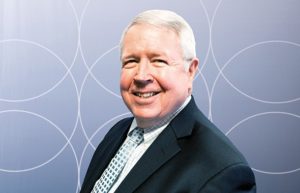Endodontics: Are We Special?
 Recent events have led some of our members to question what defines endodontics as a specialty. The Commission on Dental Accreditation (CODA), the ADA Commission for developing and implementing accreditation standards for dental education, recently removed the word “specialty” from all CODA documentation.
Recent events have led some of our members to question what defines endodontics as a specialty. The Commission on Dental Accreditation (CODA), the ADA Commission for developing and implementing accreditation standards for dental education, recently removed the word “specialty” from all CODA documentation.
An impetus for the CODA change was legal action, particularly a 2015 lawsuit in Texas that expanded specialty advertising in that state to non-ADA-recognized specialties, specifically for the four members of the American Board of Dental Specialties (oral medicine, orofacial pain, anesthesiology, and implantology). This has been followed by challenges to state boards in multiple states to similarly modify or eliminate specialty advertising rules. These challenges often compare dental to medical specialties, where there is little advertising regulation. Medicine has little use for it as virtually all practicing physicians are specialists and almost all are board certified! In dentistry, a minority of practicing dentists have the training to qualify for ADA specialty recognition, so defining the parameters of a dental specialist is a needed protection of public health and safety.
The respect and recognition of specialty status is something that we need to protect. Endodontics is not alone in feeling pressure to diminish this status. Other specialties are experiencing the same issues, with orthodontics taking a notable hard stand to distinguish specialty care.
So, what defines endodontics as a specialty? Certainly completion of a CODA-approved residency is the most basic standard, but it is more. Depth and breadth of knowledge, superior clinical skills, integrity, high ethical standards, and a high level of public trust are all contributors to the respect that we have from the public. The experience that patients have in our chairs is enhanced by the quality and expertise of specialist care. We can deliver endodontic treatment at higher quality, faster and with less discomfort, all of which protects public safety and ensures public trust.
My conclusion is that individual members should not rely on their endodontic certificate to protect them from efforts to lessen their specialty status. You need to be active in your community and keep up high standards, both clinically and ethically. Stand up for the reputation that you earned and discourage attacks on the specialty. The AAE will continue to work on a broader stage to support you and push for the higher standards of care that define us as endodontists.




